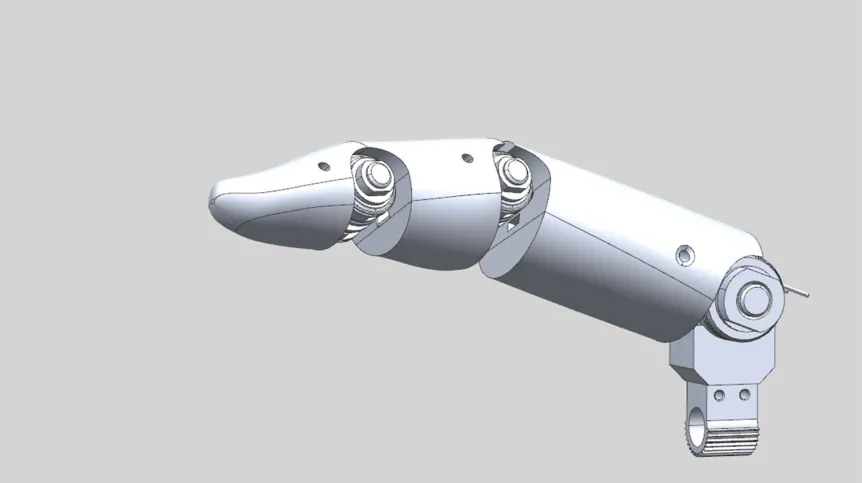
Researchers from the Warsaw University of Technology have developed a modular prosthetic hand, in which only some elements will need to be replaced as the child grows.
Thanks to the VR application, it will be possible to adjust the strength and type of grip to the individual needs of the child.
The idea was initiated by Ewelina Drelich in her diploma dissertations. During Tech-Athon, a six-person team worked on the solution: Krzysztof Popielski, Katarzyna Matys-Popielska, Vo Thi Hoang Ni, Filip Włodarczyk and Jan Tracz. The project supervisor is Dr. Anna Sibilska-Mroziewicz. The project was awarded during the Tech-Athon - a marathon of work on technological solutions with implementation potential.
According to the creators, the availability of advanced prosthetic limbs for children and adolescents is a big problem. In addition, the prostheses have to be regularly replaced, which generates additional costs. 'Our solution is modular, which means that only some parts will need to be replaced as the child grows. You could say that our prosthesis will +grow+ with the child. The idea is also distinguished by a virtual reality (VR) application that will enable personalization of the prosthetic hand grips - this solution is not even used in prosthetic hands for adults,’ the researchers say.
The initial assumption was that the prosthesis would be myoelectric, controlled by signals sent by the muscles. The team hopes to conduct separate research for this purpose. If the usefulness of EMG (electromyographic) signals in recognizing hand movements is confirmed, the proposed prosthesis will have a much greater range of motion, functionality and intuitive operation.
'Over the next nine months, our work will focus on the development of a research demonstrator of the prosthetic hand, which we will present at the Demo Day organized as part of Tech-Athon. It will be another step on our way to create a fully functional solution’,’ the scientists say.
The Tech-Athon program lasts several months and is addressed to doctoral candidates from the Warsaw University of Technology. During the finals, the best teams were selected and received funds for further development of their projects. The team working on the prosthetic hand received a distinction and PLN 30,000.
PAP - Science in Poland
kol/ agt/ kap/
tr. RL













